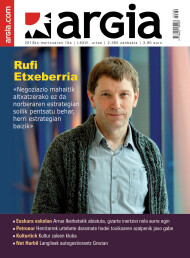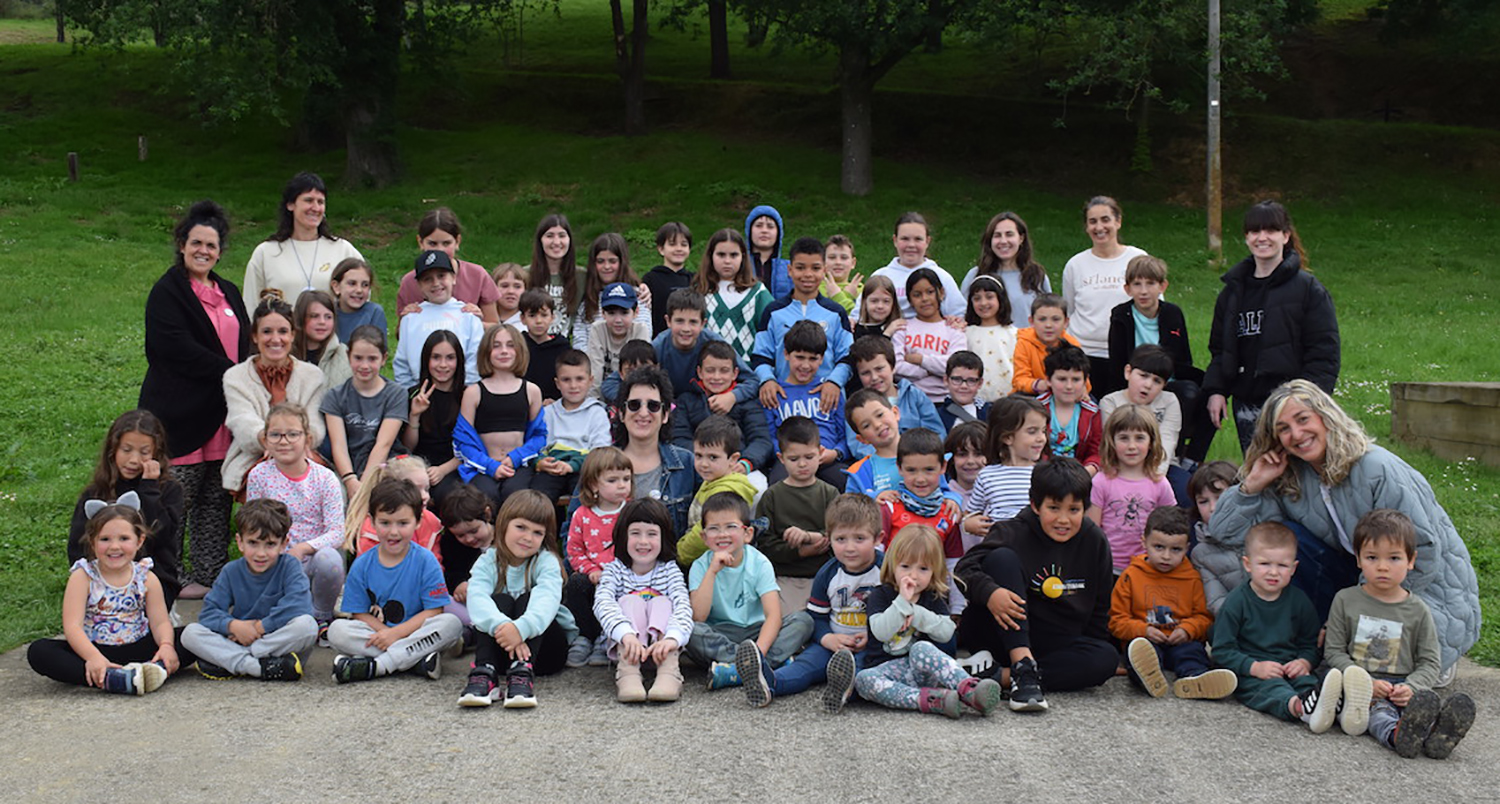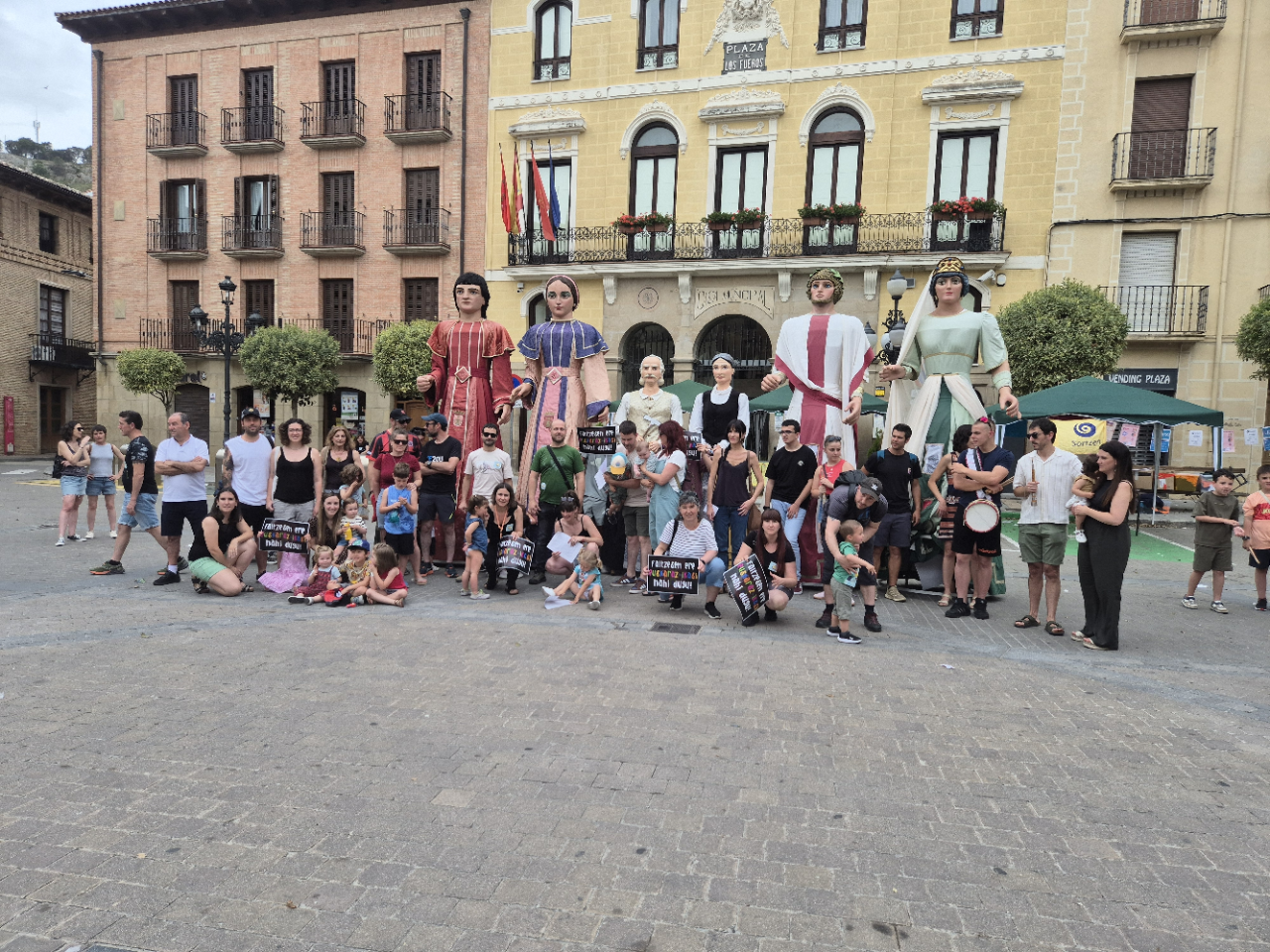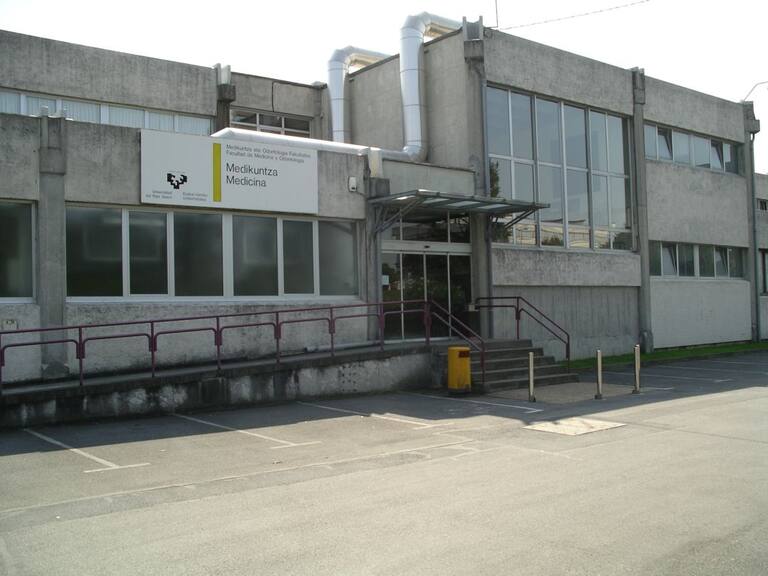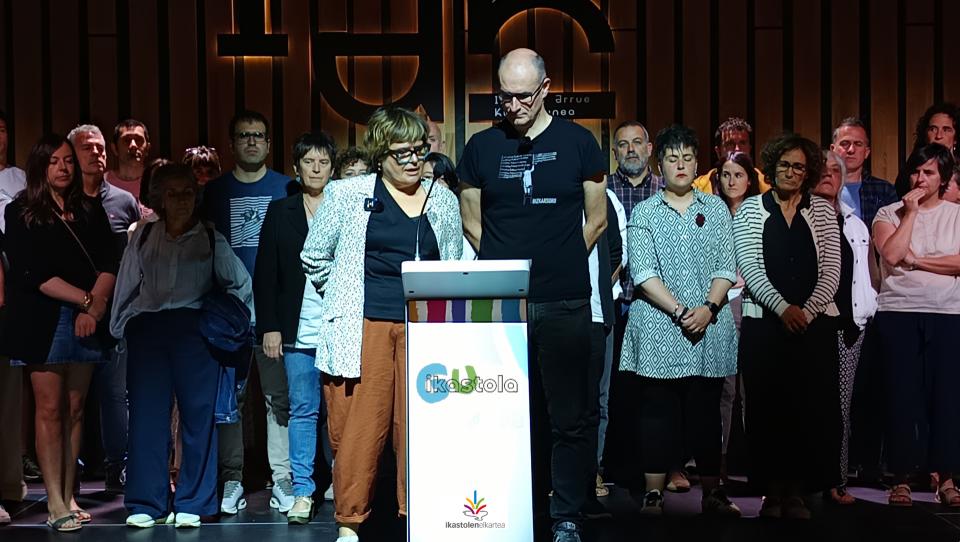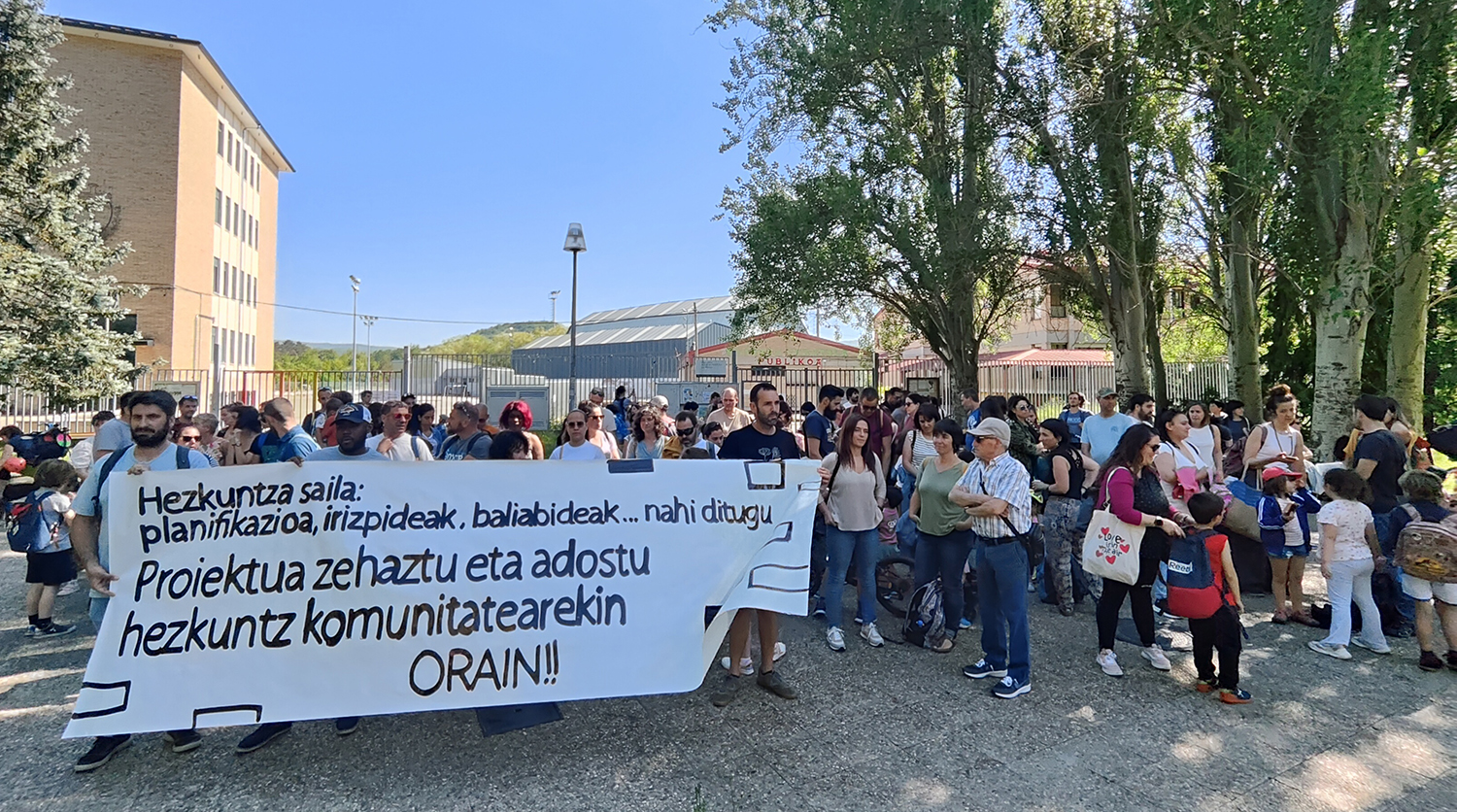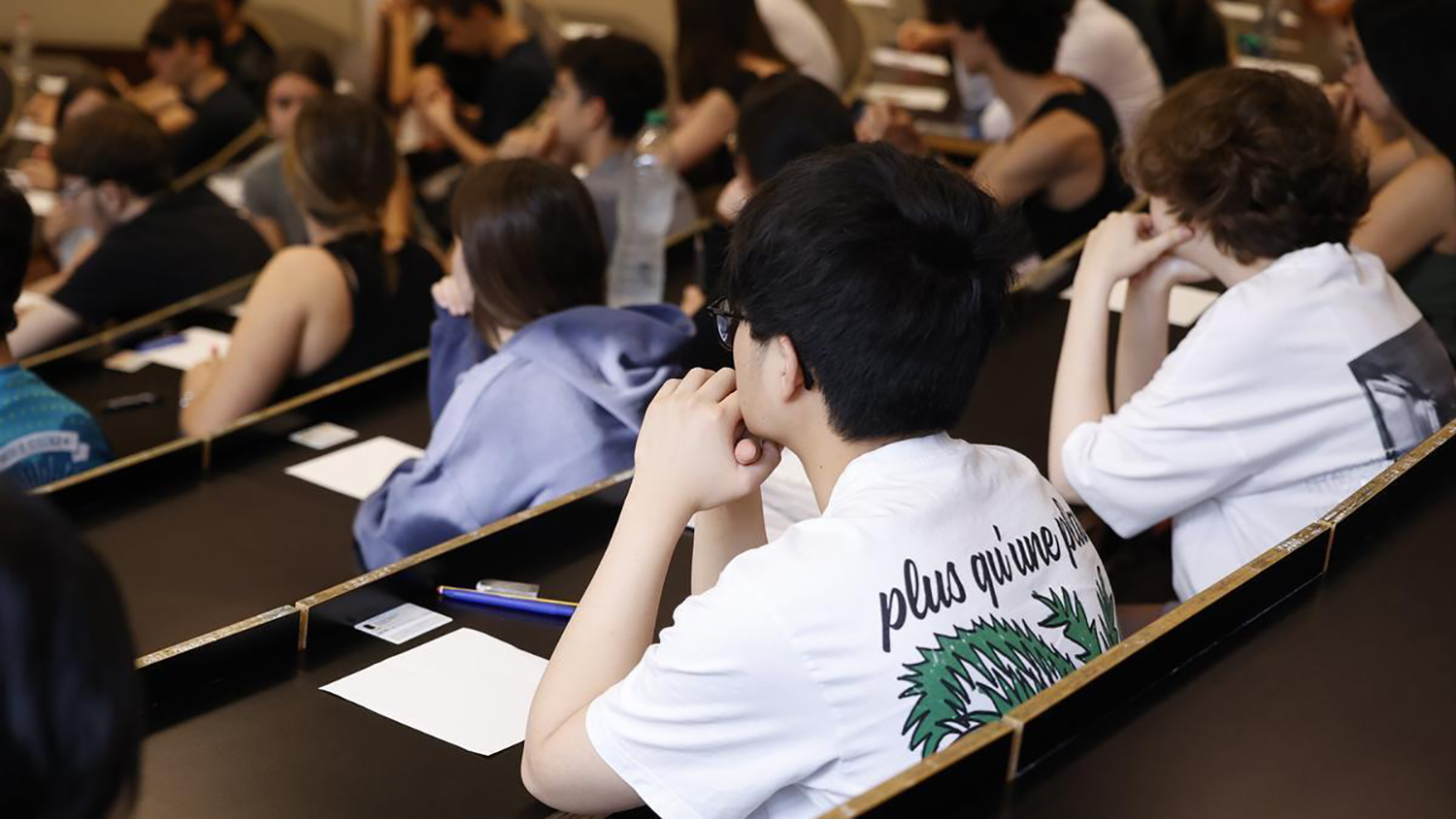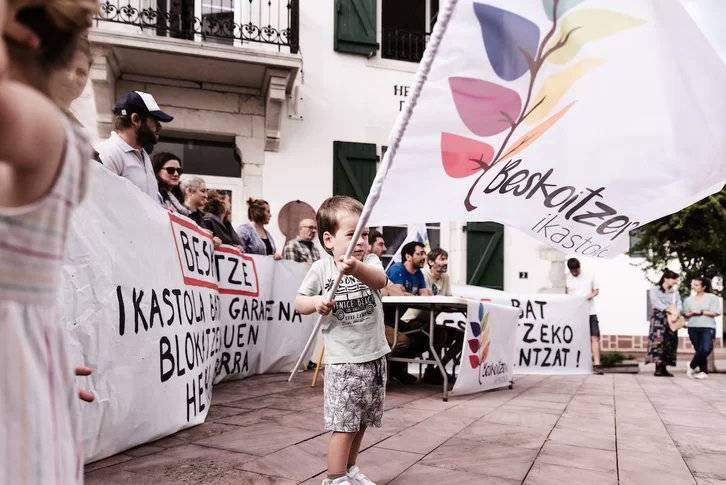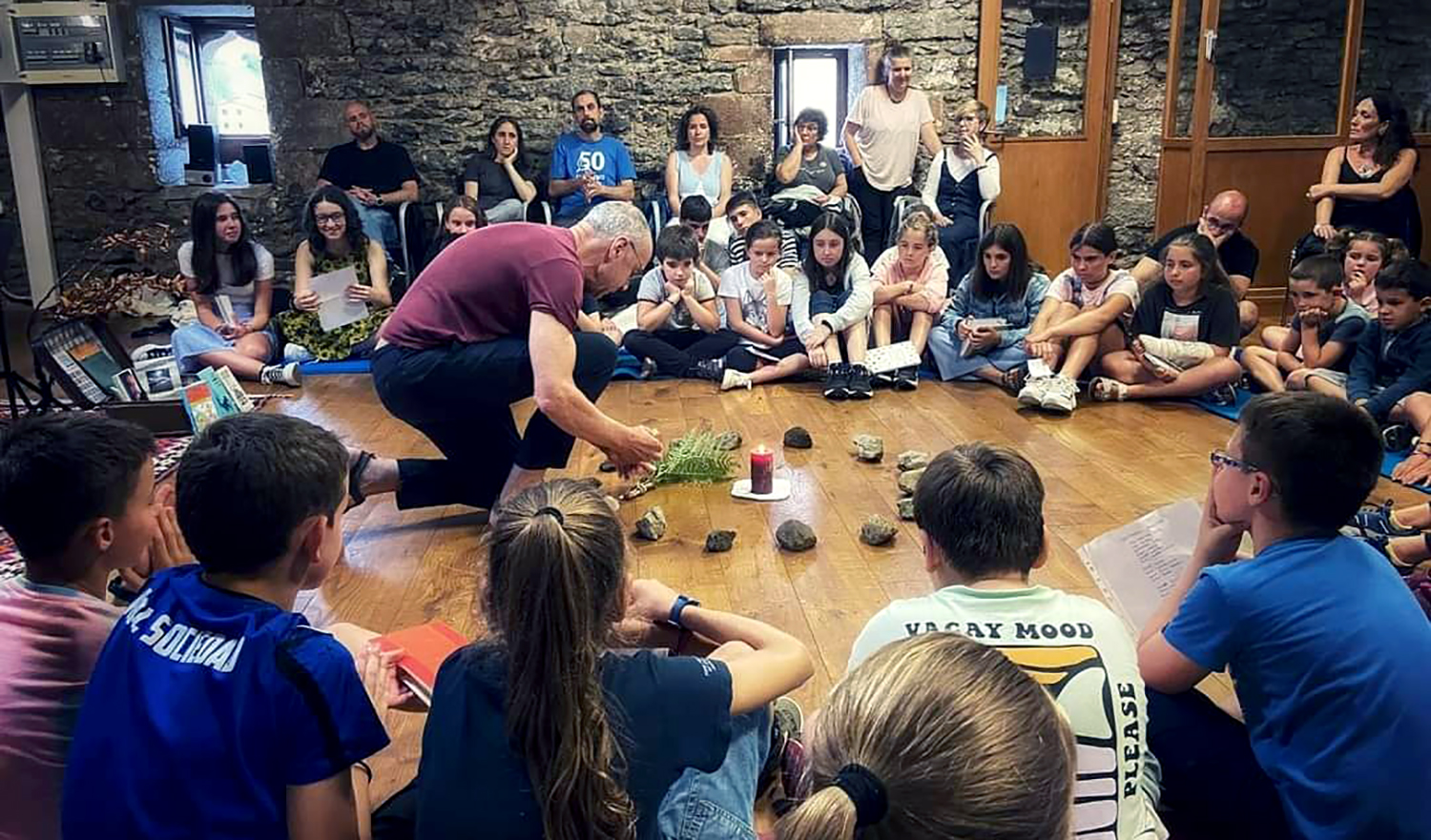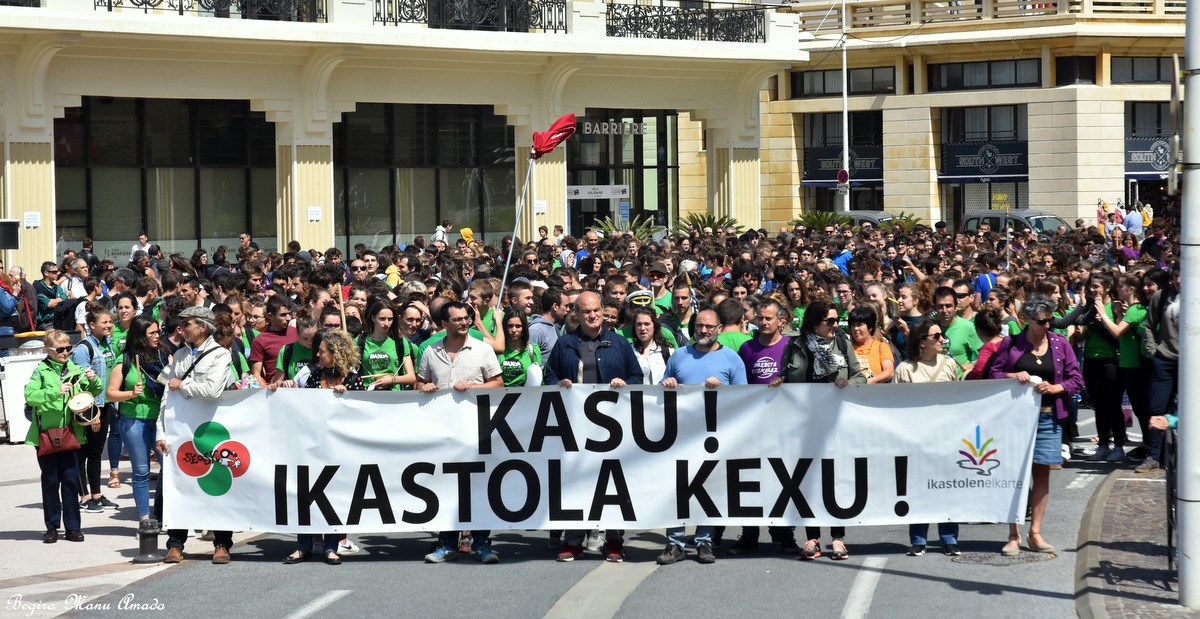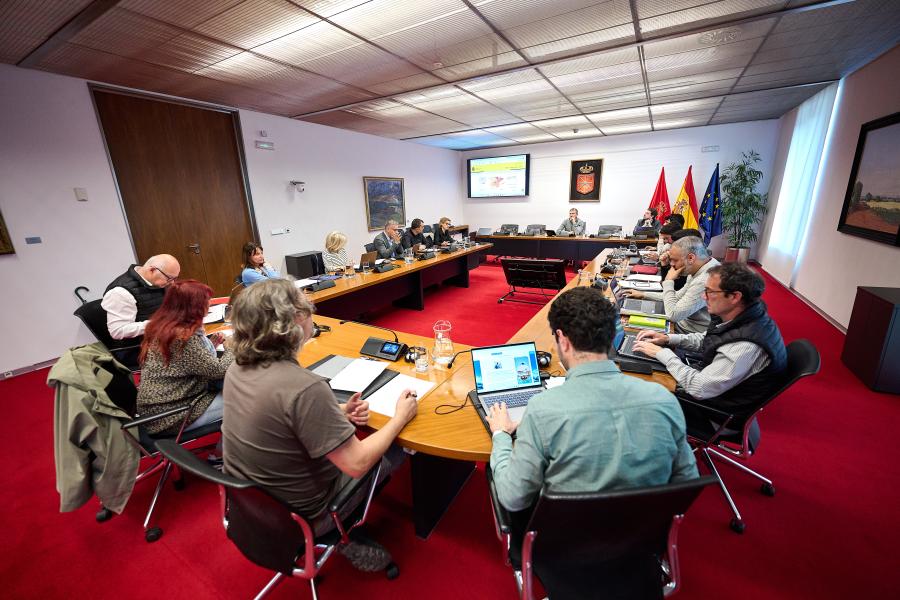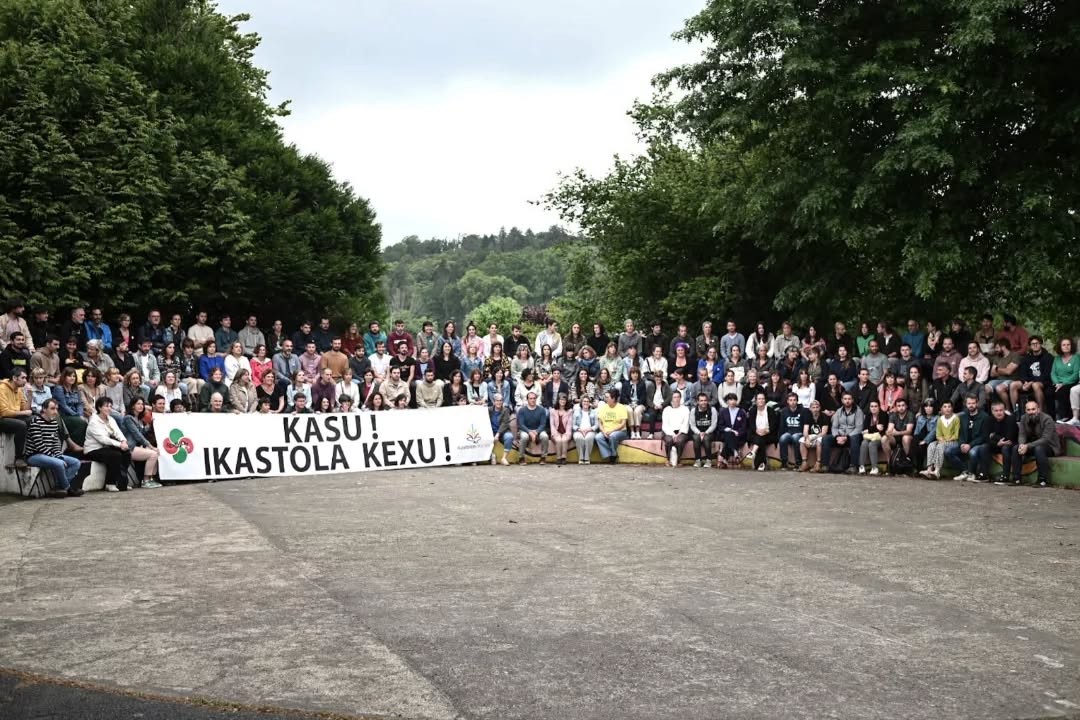"Parents sometimes dramatize the behavior of the adolescent"
- Bera is one of eight therapists working on the program, Alberto Ruiz de Alegría, a free program that is in Donostia to help struggling teenagers and their families. Last year, 151 young people from Gipuzkoa were offered aid and this year, on the occasion of their 15th birthday, a meeting was organised for April.
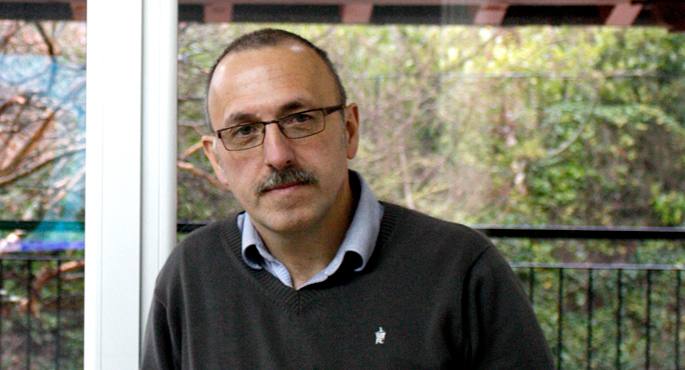
They attend to adolescents in situations of risk or lack of protection. What exactly is being at risk?
We accompany young people from 14 to 18 years of age who live specific situations in the personal or family environment and who may have problems when they move to adulthood if these situations are not controlled. They come here when there are family conflicts – when the relationship between parents and children goes through a moment of crisis – when they have adaptation problems in school or in society, if they have started using drugs, or if they have had problems with justice – a small crime or theft, a behavioural problem….
We pose and interpret situations from two points of view: on the one hand, understanding that adolescence is a stage of life with its own characteristics, a process of searching for identity, and therefore, some attitudes that would seem close to adult pathology are natural at this stage. On the other hand, considering the family, the difficulties and attitudes of boys and girls do not arise from nothing, but arise within a context in which the family environment plays a fundamental role. The family, in short, is part of the solution – we prefer to talk about the cause rather than the cause – and the parents’ response to the child’s behavior is important.
Why are young people taken?
We have a standard table to observe different characteristics. In the sessions we conducted with the family, we diagnosed how parents manage the norms and consequences that have been imposed on their son or daughter when she does not comply with the norms; how are the affective relationships with their family members, for example, the son or daughter who treats as corresponds to the age; how parents relate; how family habits are managed – if they give time to the young woman…– and if the adolescent's physical, emotional needs are well met. Once this is analyzed, we establish the objectives to work with the family. On the other hand, we test with the adolescent himself and in them we analyze how he is personally, if he has risk attitude, if he has psychopathology, what skills and habits he has, what he does in leisure time and how he develops in society, in the family and in school.
In that first diagnosis has it happened to you that the teenager doesn't need special help, which is just a matter of age?
Yes, sometimes we have to tell the family that the situation is being dramatized, that if they are well managed they have sufficient resources to cope with the situation. The parents come to you, saying, “What have we done wrong? My son has burned a leek!”, but the likelihood that a young man between 14 and 18 will burn a leek is very high, not dramatic. And on the contrary, a father can tell you that he “smokes every day, but as everyone does...” Sometimes, after the diagnosis, we also refer them to other centers depending on the resources required by the characteristics of the problem.
Parents have resources to cope with the situation. Is it important to set limits and standards?
More than important, they are necessary, we must know how to manage the rules well, but they must be based on a good affective relationship. The norms themselves, without emotional connection, present great deficiencies; the rule is dead without affection and affection without norm. The 15-16 year-old will fulfill the promises of his parents if he has placed moral authority on them and that is not achieved from one day to the next, there has to be educational coherence since childhood. The parents tell us “Don’t listen to me!” and I tell them that they are the people who will most influence my child’s life, because in the long run we all bring our parents internalized, that is why we help the parents not to go well, interpret the calmer situations, look for alternatives… The other side of the coin is the adolescent, he also has to reflect on their attitudes, he is debating. The principle that we pass on to all those who come is that you can criticise behaviors, but not people. If we have said that adolescence is seeking identity and what it receives from important people in their lives is “you are lazy, liar, you are not trusted…”, if you believe, wrong. Another thing is to say “in this you have lied to me” or “you have not learned enough”. We must try to value people.
The objective is to improve the psychosocial quality of young people. How do you do that?
Our goal is to help this stage proceed in the most appropriate way possible, relaxing the possible tensions and those experienced in the family environment. Our approach is not to make immediate changes, but to be able to detect what has been worked in the long term. Conflict resolution takes time, scars don't disappear overnight, wounds need time to close. You don't have to think it's the end because the child has had a serious behavior, you don't have to think it's the end, you have to face and follow, nothing is the end.
In each person, each young person has a therapist to talk about concerns and uncertainties, because always from a narrow bond, to get a relationship of trust, to feel overwhelmed, will be the main driver of change. Most of us also put them in groups, with other adolescents, to share how girls and boys of the same age face the difficulties and how they interpret the facts. We also have a school reinforcement programme in coordination with schools. We have individual and group conversations with the family, with other parents. In addition, we have multi-family groups that bring together a large number of parents and children, which helps to free up blockages around specific issues.
So, put young people in groups in search of solutions.
In adolescence, the relationship with friends is very important, the family becomes an alternative. When you're a child, you look at reality from a parent's point of view (what's OK and what's OK and when we start walking with friends and friends, we question that reality, it's beneficial, it's healthy, because it helps us build our own differentiated identity of our parents, but sometimes this process creates tensions, and here's an adult who helps us manage those relationships between young people and put the topic of debate on the table.
What kind of issues?
Affection, sexuality, studies – and the role of each in school – family issues, communication… Last year, for example, we held cooking and family workshops, and it helped us to talk about the eating habits of children, their place at the table, whether they eat alone or eat with their family members… We took the issues to work according to the needs we see at every moment. For example, if in school or outside they have attacked someone, we will talk about mutual respect. We also address issues with groups of parents, will soon focus on the needs of the adolescent, both cognitive and emotional and physical. For example, adolescents have a contradictory need: for their parents to be there and to leave them alone. When the father tells us that the children spend the day in the room, we answer that it is not the same to be in the room knowing that the parents are at home than to be alone at home. Another need is to be with your friends and the rules cannot go against the needs, so punishing your child without leaving a month is not the way, withdraws, spoils you an important social need, you have to manage the situation differently.
How long does the process take for oneself and how successful are you?
On average, about a year and a half, but we're trying to adapt to what people need. If you come in young people and families with big shortages, or an isolated family without external protection, you'll spend more time, because they need support and support, security. Others come for a given situation and need little time.
When we are discharged, we value whether the teenager has improved. According to the data obtained so far, approximately half have achieved an adequate improvement, one quarter has been partial and the rest has not been significantly improved. In these cases, if the situation of risk or lack of protection persists, the young person is redirected to other centers that can help.
How does current youth see in general?
It has always been said that young people are against values, but adolescence is healthy, we have to trust, not to be scandalized. People must be called to account when they are wrong, but we must not seek to blame; it is the minority who do things badly. On the other hand, we must place adolescence in the current environment. For example, the generation born between 1960 and 1968 was captured by heroism and died a lot of them, but nowadays there is hardly any use of this drug: Are the problems different? No, the context is different. Boys and girls express their difficulties in a changing context. The economic crisis will leave us different expressions to the previous contexts, since each generation has its own idiosyncrasies. At one time it seemed that the right of adolescents was to be a motor, but that is not going to be so... The experiences, the impulses, the difficulties, the deficiencies will continue to be expressed, but otherwise.
“Ezin diogu heldutasun gradu jakin bat eskatu heldutasun hori izatea ez dagokion etapa bati. Egia da nerabezaroa dela heltze biderako prozesua, baina prozesu irekia da. Kontrakoa ere arriskutsua da, guraso batzuek joera baitute gainbabesteko, eta seme-alabari ematen diozun mezua da ‘ni gainean ez banengo…’, baina beti ez gara gainean egongo. Heziketak amaiera du –ezin gara egon seme-alabak 30 urte bete arte arauak jartzen–; adin batera arte hezi egiten dugu eta adin batetik aurrera lagundu. Esaten da heziketa hiru zutabek sostengatzen dutela: afektiboa, arauemailea eta autonomia-bultzatzailea”.
Herri txikiak bizirik dauden eremuak direla eta bizirik jarraitzeko herriari begiratuko dion eskola gakoa dela aldarrikatuko dute, aurten ere, Gipuzkoako Eskola Txikien Festan. Ekainaren 8an ospatuko dute, igandean, Ezkio-Itsason, landa guneko herri txikiak hezkuntzarako zein... [+]
Many animals use coincidence with the group as a survival strategy. This character has often been neglected, equating many collectives with herds, as a mass without its own character that must be guided. But the community, when it suspects the threat, knows how to use its... [+]
In the debate on education, the neologism that some of us are using (I think we can call it that) is pedagogy, which perhaps needs an explanation. The idea is to give pedagogy a chance, separating the two things. As in the distinction between science and science, pedagogy would... [+]









